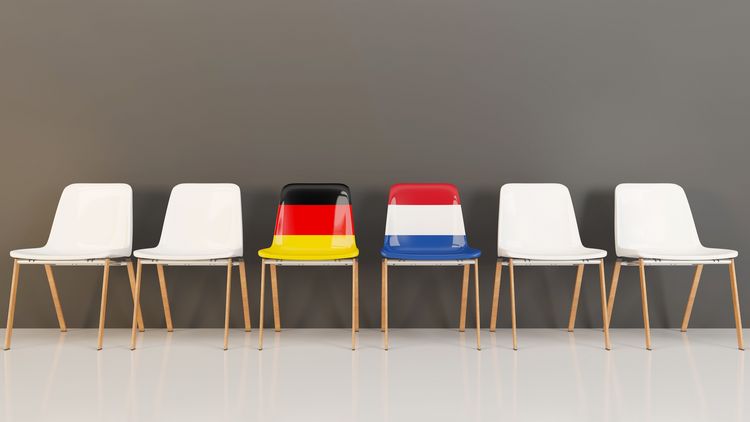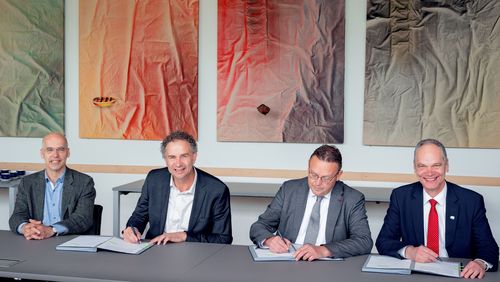Over the next few years, the Cross-Border Institute of Healthcare Systems and Prevention (CBI), which is jointly run by the University of Oldenburg and the University of Groningen, will investigate differences between Germany and the Netherlands in the prescription of antibiotics, standard operating procedures for patients undergoing surgery, management of multidrug-resistant bacteria, nursing staff shortages, and procedures for dementia patients in nursing homes.
The researchers will also compile a German-Dutch database that brings together important health and healthcare data for current and future research. More than 40 researchers from both universities are involved in the project, which is titled "Comparison of healthcare structures, processes and outcomes in the German and Dutch cross-border region II" (CHARE-GD II). The Lower Saxony Ministry of Science and Culture is providing 1.4 million euros in funding for the project from the Volkswagen Foundation's "Niedersächsisches Vorab" programme.
Focus: How to prevent antibiotic resistance
In three sub-projects, the researchers will focus on the question of how to prevent antibiotic resistance. One of the factors that leads to the development of resistance is that antibiotics are prescribed too frequently. Previous studies have shown that German children are prescribed antibiotics more frequently than Dutch children, and that the number of antibiotics prescriptions for both adults and children is higher in the border region. The team plans to conduct surveys among doctors and patients to find out to what extent differences not just in medical practice, but also for example cultural or political differences influence the prescription of antibiotics.
But preventing infections from occurring in the first place is better than having effective drugs to treat them, which is why the CBI researchers will also study the protocols, guidelines and standard operating procedures of medical staff for dealing with patients who are undergoing surgery and therefore exposed to wound infection. What instructions for infection control do hospital staff receive? How do standard operating procedures affect infection rates? Following on from these questions, the researchers will also investigate the incidence of multi-drug resistant bacteria in patients, as well as approaches to dealing with this problem, from prevention to diagnosis.
One of the biggest challenges: nursing staff shortages
In another sub-project the researchers will focus on one of the biggest challenges in the health sector: nursing staff shortages. A 2015 study showed that more than one in three nurses in Germany and almost one in five in the Netherlands were considering giving up their profession. Job dissatisfaction and the high burnout rate were among the most commonly cited reasons. The experts at the CBI now plan to carry out a survey among hospital employees at different levels in both countries. Some 2,500 nurses will be included. The researchers hope that the data gathered in the survey will provide insights into different personnel strategies and their effectiveness and also give an idea of how willing nursing staff at hospitals are to integrate new technologies that could ease their workload into their daily work.
Another sub-project takes the researchers to nursing homes in the region, where they will investigate how these facilities deal with the risk of patients with dementia leaving the building unnoticed and not being able to find their way around in the outside world. In many cases, doors are kept locked to prevent such incidents. However, this practice raises numerous ethical questions. By conducting studies in eight care facilities, the team aims to shed light on the different moral perspectives and also facilitate dialogue and the exchange of knowledge and information between the German and Dutch facilities so that they can learn from each other.
CBI brings together scientists from various disciplines
Founded in 2019, the CBI brings together scientists from various disciplines at the Universities of Oldenburg and Groningen to collaborate in researching structural differences in the healthcare systems of Germany and the Netherlands and their impact on patients in the northern Dutch-German cross-border region. Healthcare researchers, public health experts, biomedical scientists, social scientists, economists and information scientists are working together to discover and develop best practice models and lay the foundations for cross-border healthcare. In March 2021, the CBI received a grant of about one million euros from the Lower Saxony Ministry of Science and Culture to finance the CHARE-GD I project for the next three years. The CHARE-GD II projects for which funding has now been approved will begin in March 2022 and run until 2025. Two scientists from the University of Oldenburg will lead the CHARE-GD II initiative: microbiologist and virologist Prof. Dr. Axel Hamprecht and health services researcher Prof. Dr. Lena Ansmann.




